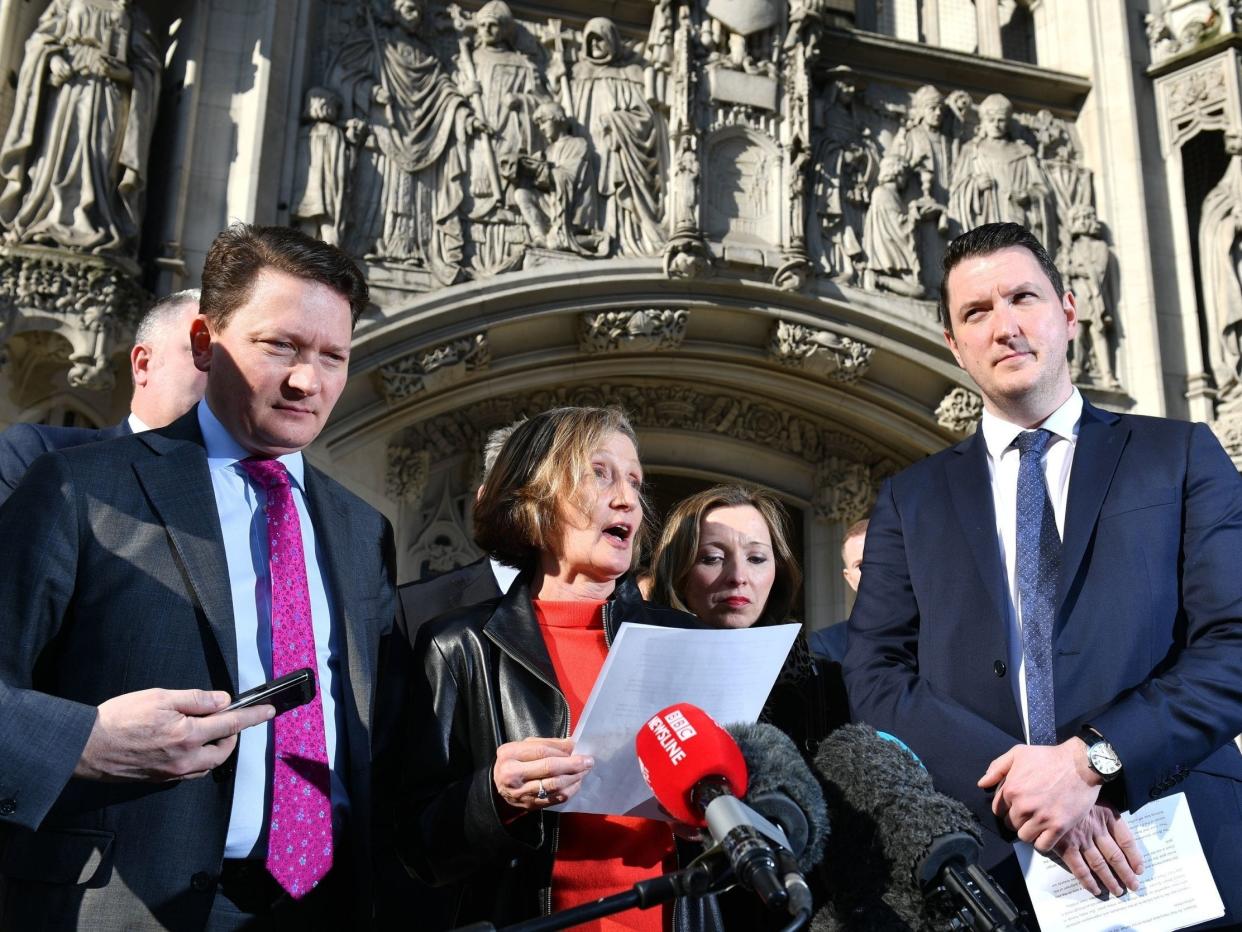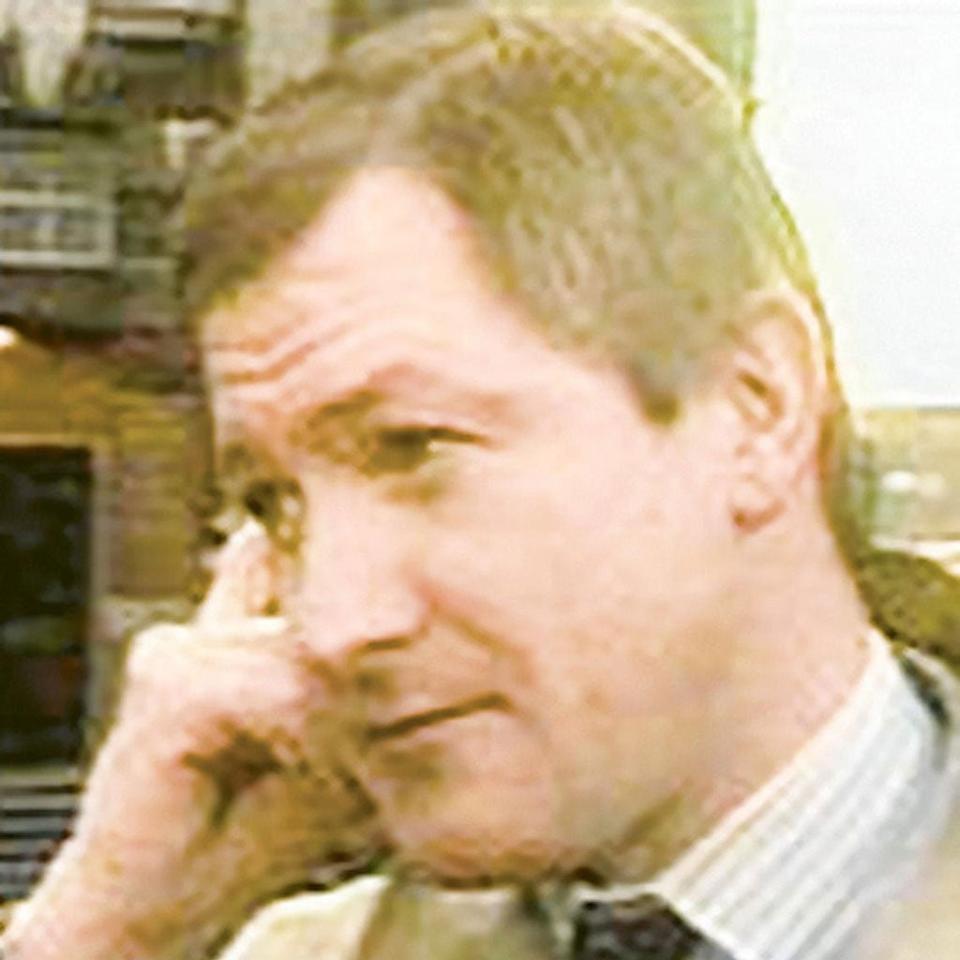Pat Finucane: Who was the murdered Belfast solicitor and what next in his widow's fight for justice?

The UK government is to announce on Monday whether it will hold a public inquiry into the murder of Pat Finucane, the Belfast solicitor, during the Troubles in 1989.
It follows calls for an official investigation from two dozen members of the US House of Representatives and from Micheal Martin, the Irish premier. Republican congressman Chris Smith called Westminster’s refusal to hold the probe until now “a public breach of faith” with the Northern Ireland peace process.
The Supreme Court ruled a year and a half ago that previous investigations by the government had not been properly carried out and returned the matter to ministers for a decision, but they have delayed making a response.
Brandon Lewis, the Northern Ireland secretary, is to inform the Finucane family today of what next steps the government plans to take, after a fresh judicial review brought by them forced him to commit to a decision by 30 November.
Pat Finucane was 39 when he was killed in front of his wife and three children on 12 February 1989.
Two masked loyalist paramilitaries knocked down the front door of his house on on Fortwilliam Drive in the Northern Irish capital with a sledgehammer, burst into his kitchen during Sunday dinner and shot him 14 times.
The victim was a Catholic, the eldest of seven children, who was known for defending members of the Irish Republican Army (IRA) members and associated groups, including Maze prison hunger striker Bobby Sands, although he had also represented loyalists.
Following his murder, one of the most frightening and shocking events of the Troubles, the Royal Ulster Constabulary (RUC) launched a six-week investigation under detective superintendent Alan Simpson that noted the lack of intelligence forthcoming from the relevant security agencies.
It later emerged that Brian Nelson, the loyalist paramilitary intelligence officer responsible for directing Ulster Defence Association (UDA) attacks, was a British agent.
The UK government duly instigated the three Stevens Inquiries into collusion in Northern Ireland under Sir John Stevens, who began in 1990 by suggesting he believed the problem was “neither wide-spread nor institutionalised” but had entirely changed his view by 1999, when he concluded there was indeed evidence of collusion between security services in the Finucane case.
Amnesty International duly demanded Labour secretary of state for Northern Ireland Peter Mandleson launch a public inquiry. Retired Canadian judge Peter Cory investigated on behalf of the British and Irish governments, concluding in April 2004 by recommending public enquiries be held.

Five months later, Ken Barrett, a former UDA member, pleaded guilty to being one of the two masked men who burst into the Finucane home.
Then-Irish taoiseach Bertie Ahern told a US special envoy to Northern Ireland that “everyone knows” Westminster was involved in the lawyer’s killing, prompting the US House of Representatives to pass a resolution calling on the British government to launch a public inquiry.
Tony Blair’s government agreed to one in 2007, only for it to be blocked under the Inquiries Act 2005.
Ex-UN war crimes prosecutor Sir Desmond de Silva, who died last year, was appointed by David Cameron in 2011 to examine the question of possible collusion between the British army, the RUC, Gardai and MI5 in Finucane’s killing.
Mr Cameron apologised to the Finucane family but caused consternation when it emerged Sir Desmond’s investigation would only revisit the Stevens and Cory case files rather than constitute a new public hearing.
Monday’s expected announcement by the UK government marks the latest major milestone in the three-decade campaign by Finucane’s widow, Geraldine, to establish the true circumstances surrounding his murder.
It comes after the Supreme Court ruled in February 2019 that the probe ordered by Mr Cameron fell short of human rights standards because Sir Desmond was unable to question witnesses.
But the court did not order a new public inquiry be carried out, returning responsibility for the case to the government, a source of bitter frustration to Ms Finucane who said afterwards the state had unlawfully “reneged” on its promise to hold a hearing rather than a review.
Nonetheless, she added at the time: “The British government now knows that it cannot conceal the truth any longer. They have now been told this by the highest court in the land.
“It is time for the murder of Pat Finucane to be properly and publicly investigated in a public inquiry. Nothing less will suffice.”


